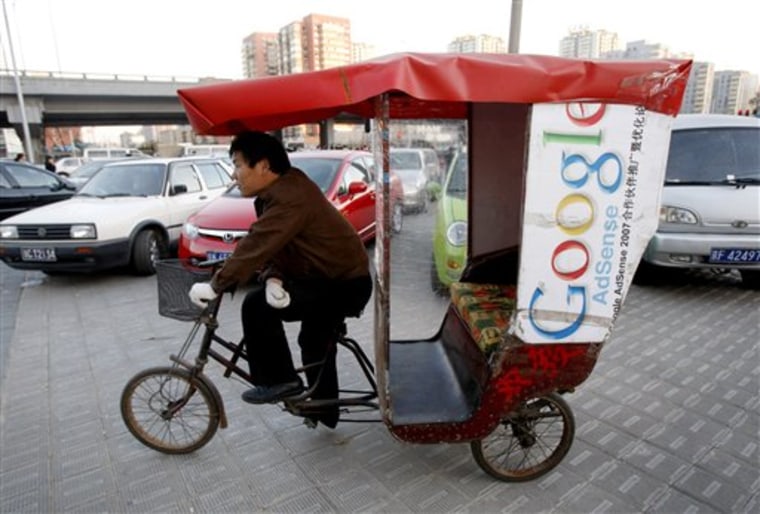A Chinese group is accusing search engine powerhouse Google of illegally copying Chinese-language works for its digital library, adding to disquiet about a project to scan millions of books.
The government-affiliated China Written Works Copyright Society, based in Beijing, posted a notice on its Web site urging authors to "bravely stand up and adamantly defend their legal rights." It also urged authors to check if their works are in a list of books that's part of a tentative legal settlement between Google and U.S. authors and publishers.
Google's project to scan and post online snippets from millions of out-of-print but copyrighted books has raised objections from many quarters. The company has called the project, which also scans public domain works, an invaluable chance for books to receive increased exposure.
Chen Cun, a novelist based in Shanghai, said he found material from 38 of his works in Google's digital library, including 12 novels and three other books.
"Google never bothered to notify me or Chinese authorities. They should have let me know my works would be put online," Chen said.
The Chinese nonprofit group was set up a year ago under the supervision of the government's copyright administration to represent various associations of writers, who face rampant and blatant infringements of copyright in their home market, as do foreign authors.
But it is now taking U.S. critics to task for protesting Chinese copyright violations while Google is copying works without prior authorization and posting them online.
"Google's digital library scanned those copyright-protected works without permission. This violates American copyright laws and international treaties," Zhang Hongbo, deputy director-general of the group, told The Associated Press.
"This also violates the basic principle that they should ask permission from the authors first, pay to use then and then use them," he said.
The proposed settlement between Mountain View, Calif-based Google and U.S. authors and publishers applies only to the United States, Google said in an e-mailed statement.
"Of course, we listen carefully to all concerns and will work hard to address them," Google said. "We are actively encouraging authors, publishers, and rightsholders around the world to register for the settlement," it said.
Parties involved in the settlement are revising the agreement to meet Justice Department concerns over antitrust and copyright issues, with a U.S. court due to rule on its validity early next month.
Under the Google Print Library Project, snippets from millions of out-of-print but copyrighted books have been scanned and indexed online by libraries.
Google also works with publishers that choose to partner with it to include parts of their copyrighted materials.
Copyright holders can opt out of the project if they choose to do so, Google says.
"Control over the works remains firmly in the hands of the rightsholders — they can leave their works in the program and decide on all the toggles for access, or even pull their books out," the Google statement said.
A China Daily report said the Chinese Written Works Copyright Society had found nearly 18,000 books by 570 Chinese authors had been scanned by Google and included in its digital library, most of them without any notification or payment to the writers.
Google should acknowledge its alleged infringement of copyrights and negotiate fair compensation for the writers, Zhang said.
"We need to sit down and discuss this," said Chen, the novelist. "How much I should be paid should come from discussions between Chinese authors and Google, not just an online announcement," he said.
